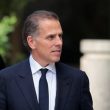Populism, characterized by a focus on the interests and concerns of ordinary people, often in opposition to the elite, has surged globally. While it promises to address the grievances of the populace, it can undermine democratic institutions and promote authoritarian tendencies. The antidote to the potentially damaging effects of populism lies in exposing it to the practicalities and responsibilities of government. This exposure reveals the complexities of governance, the necessity of compromise, and the difficulty in implementing oversimplified solutions to complex problems. This article explores the interplay between populism and governance, highlighting the crucial role of exposure in maintaining democratic integrity.
The Nature of Populism

Populism thrives on the dichotomy between ‘us’ (the people) and ‘them’ (the elite). Populist leaders often claim to represent the true will of the people against a corrupt establishment. This narrative can resonate strongly, especially in times of economic distress or social upheaval. However, populism’s reliance on simplistic solutions and charismatic leadership can pose significant risks to democratic norms and institutions.
Populists often promise sweeping reforms and quick fixes to deep-seated issues. These promises are usually grounded in a binary view of the world, ignoring the nuanced and multifaceted nature of policy-making. This approach can erode trust in institutions and polarize societies, making collaborative governance more challenging.
The Challenge of Governance
Governance involves balancing diverse interests, navigating bureaucratic complexities, and ensuring policies are sustainable and equitable. When populists transition from campaigning to governing, they often encounter the stark reality that implementing their promises is far more complicated than it seemed. This transition exposes the inadequacies of populist rhetoric and the limitations of their proposed solutions.
For example, populist economic policies, such as protectionism or extensive welfare programs, might initially appeal to the electorate. However, these policies can lead to unintended consequences such as trade wars, budget deficits, and inflation. The exposure to governance compels populist leaders to confront these economic realities, often resulting in policy reversals or adjustments.
The Role of Institutional Checks and Balances
Democratic institutions play a pivotal role in moderating the excesses of populism. Checks and balances, such as independent judiciaries, free press, and legislative oversight, ensure that no single entity can monopolize power. These institutions can compel populist leaders to adhere to democratic norms and legal frameworks, mitigating the risks of authoritarianism.
For instance, judicial review can block unconstitutional measures proposed by populist leaders. Similarly, legislative bodies can scrutinize and amend populist policies, ensuring they align with broader societal interests. This institutional resistance exposes the infeasibility of certain populist promises, fostering a more pragmatic approach to governance.
Case Studies in Populism and Governance
Examining specific cases where populist leaders assumed power provides insights into how exposure to governance impacts populism.
- Greece – Alexis Tsipras: Elected in 2015 on an anti-austerity platform, Tsipras’s government faced the harsh realities of international finance and economic constraints. Despite initial resistance, Tsipras eventually agreed to austerity measures to secure bailout funds, illustrating the gap between populist promises and practical governance.
- United States – Donald Trump: Trump’s administration highlighted the tension between populist rhetoric and governance. Promises such as building a border wall paid for by Mexico and repealing the Affordable Care Act faced significant legislative and judicial challenges. The exposure to the checks and balances of American democracy revealed the complexities of enacting such policies.
- Brazil – Jair Bolsonaro: Bolsonaro’s tenure demonstrates the struggle between populist rhetoric and institutional constraints. His aggressive stance on environmental regulations and handling of the COVID-19 pandemic faced resistance from both the judiciary and civil society, underscoring the role of institutional checks in moderating populism.
The Importance of Civic Education
Civic education is essential in fostering an informed electorate that can critically evaluate populist claims. Educating citizens about democratic principles, the functioning of government, and the importance of pluralism can reduce the appeal of populist rhetoric. An informed electorate is better equipped to hold leaders accountable and demand evidence-based policies.
Comparative Analysis Table
| Aspect | Populist Rhetoric | Governance Reality | Example |
|---|---|---|---|
| Economic Policy | Simple solutions, protectionism, welfare state | Complex trade-offs, fiscal constraints | Greece under Alexis Tsipras |
| Immigration | Strict controls, simplistic enforcement | Legal, humanitarian, and economic considerations | U.S. under Donald Trump |
| Environmental Policy | Deregulation, economic prioritization | Sustainable development, global agreements | Brazil under Jair Bolsonaro |
| Healthcare | Broad promises of universal care | Budgetary limits, insurance frameworks | U.S. Affordable Care Act repeal attempts |
| Governance Style | Charismatic leadership, direct appeal | Institutional checks, legal scrutiny | Various cases with judicial and legislative checks |
Analysis Table
| Factor | Positive Impact | Negative Impact | Mitigation Strategies |
|---|---|---|---|
| Simplistic Solutions | Immediate appeal to public grievances | Long-term policy inefficacy | Public education, transparency |
| Charismatic Leadership | Mobilizes support, drives engagement | Cult of personality, weakens institutions | Strengthening institutional checks |
| Anti-elite Sentiment | Addresses genuine concerns of marginalization | Polarizes society, undermines trust | Inclusive governance, dialogue promotion |
| Direct Democracy | Empowers citizen participation | Bypasses representative processes | Balancing direct and representative mechanisms |
| Policy Implementation | Can introduce necessary reforms | Risk of poorly planned policies | Comprehensive impact assessments, stakeholder consultation |
Conclusion
Exposing populism to the Government practicalities and responsibilities of governance is the last best hope for mitigating its potential negative impacts. This exposure reveals the complexities of policy-making, necessitating a more nuanced and pragmatic approach. Institutional checks and balances, alongside civic education, play crucial roles in maintaining democratic integrity and fostering informed citizenry. As populist leaders grapple with the realities of governance, their rhetoric is often tempered, leading to a more balanced and sustainable political landscape. By understanding and addressing the root causes of populism, democracies can safeguard their institutions while responding to the legitimate concerns of their populations.











